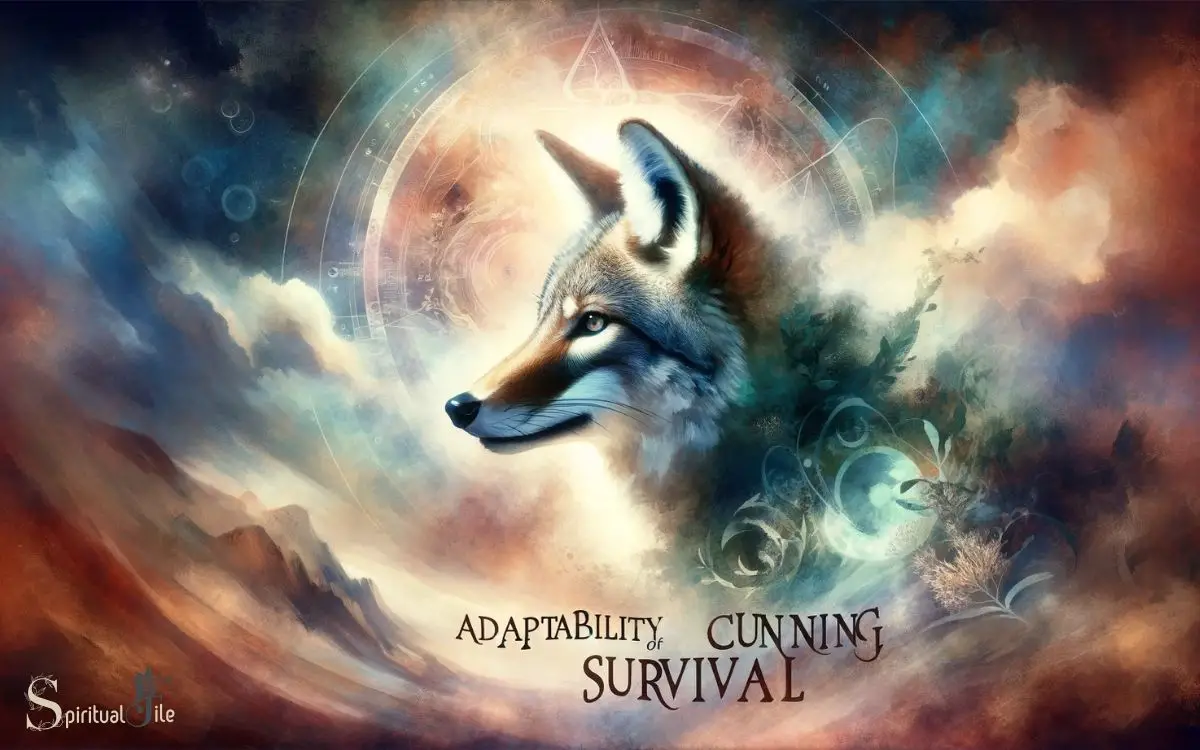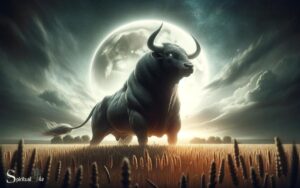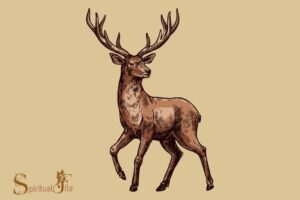What Do Coyotes Represent Spiritually? Cunning!
Coyotes represent spiritually the qualities of adaptability, cunning, intelligence, and playfulness.
In various cultures and belief systems, the coyote is often seen as a trickster figure, embodying both wisdom and mischief.
They are known to be adaptable creatures, capable of surviving in various environments and thriving in the face of adversity.
Their cunning nature and intelligence make them skilled hunters and symbols of resourcefulness. The coyote’s playfulness and lightheartedness remind us not to take life too seriously and to find joy even in difficult situations.
Coyotes have long been revered and respected in various cultures for their unique spiritual symbolism. As a totem animal, they guide individuals to tap into their innate resourcefulness and ability to adapt to any situation.
By embracing the coyote’s spirit, one can learn to approach life’s challenges with intelligence and a playful attitude, infusing their experiences with joy and lightness.
Key Takeaway

4 Spiritual Symbolism of Coyotes
| Culture/Origin | Spirituality/Meaning | Symbolism/Representation |
|---|---|---|
| Native American | Trickster, intelligence, adaptability | Coyote as a teacher and guide |
| Shamanism | Unveiling hidden truths, illusions | Coyote as a messenger and revealer |
| Totem Animals | Playfulness, balance, resourcefulness | Coyote as a spirit animal guide |
| Navajo | Skinwalkers, shape-shifting | Coyote as a symbol of fear |
Coyote Symbolism in Native American Culture
In my understanding, coyote symbolism holds significant importance in Native American culture. The coyote is often seen as a complex and multifaceted symbol, representing both positive and negative traits.
In some tribes, the coyote is a trickster figure, known for its intelligence and cunning nature. It is often depicted as a shape-shifter, capable of taking on different forms and fooling others.
However, the coyote is also a symbol of adaptability, survival, and resourcefulness. It is revered for its ability to thrive in diverse environments and overcome challenges.
Additionally, the coyote holds spiritual significance, with its howling often associated with communication between the human and spiritual realms.
Understanding coyote symbolism in Native American culture provides insights into the values, beliefs, and worldview of indigenous communities.
The Trickster Archetype in Spiritual Lore
One thing I find fascinating about the trickster archetype in spiritual lore is its ability to challenge societal norms and expectations.
The trickster figure, often portrayed as a mischievous and cunning character, exists in the mythology of diverse cultures, including Native American, African, and Norse traditions.
This archetype embodies the paradoxical nature of existence, blurring the lines between good and evil, order and chaos. Through its antics and unconventional behavior, the trickster disrupts established structures, prompting individuals to question their beliefs and perceptions.
In doing so, it invites introspection and personal growth, urging us to embrace the unpredictable and find wisdom in unexpected places.
This archetype serves as a reminder that life is not always straightforward and that embracing uncertainty can lead to profound insights.
Consequently, it encourages us to approach spirituality with an open mind and a willingness to explore the unknown.
This notion seamlessly ties into the concept of coyote as a guide in shamanic practices, where the unpredictable and transformative nature of the trickster archetype finds resonance.
Coyote as a Guide in Shamanic Practices
Exploring the spiritual significance of coyotes, my experiences with shamanic practices have revealed their role as guides in navigating the transformative realms.
In shamanic traditions, the coyote is often seen as a mentor and a companion on the journey through different states of consciousness. As a guide, the coyote helps to navigate the intricate landscapes of the spiritual realms, offering protection and wisdom along the way.
It is believed that the coyote spirit possesses a deep understanding of the hidden mysteries and can lead individuals through the challenges of spiritual transformation.
Through its playful and adaptive nature, the coyote teaches us to embrace change and to approach life with a sense of curiosity and flexibility. In shamanic practices, working with the energy of the coyote can bring about profound insights and aid in personal growth.
Coyote in Mythology and Folktales
As a spiritual symbol, my encounters with mythology and folktales have unveiled that coyotes are depicted in a multitude of stories across various cultures. In Native American folklore, the coyote is often portrayed as a trickster figure, using its wit and cunning to outsmart others.
In some tales, the coyote is a creator god, responsible for shaping the world and its inhabitants. Additionally, in Mexican and Central American mythology, the coyote is associated with the god Tezcatlipoca, often seen as a symbol of transformation and unpredictability.
Across different Native American tribes, there are stories of the coyote as a teacher, sharing wisdom and lessons with humans. These diverse representations of the coyote in mythology and folktales highlight its significance as a complex and multifaceted spiritual symbol.
Do Coyotes and Raccoons Share Similar Spiritual Symbolism?
Coyotes and raccoons represent adaptability spiritually in different cultures. In Native American traditions, both animals are seen as clever and resourceful, adapting to various environments. Their shared symbolism reflects the ability to navigate life’s challenges with resilience and ingenuity.
Modern Interpretations of Coyote Symbolism
In my exploration of modern interpretations of coyote symbolism, I find that the coyote continues to hold deep spiritual significance in contemporary contexts. As society evolves, the symbolism of the coyote has adapted to reflect modern beliefs and values.
Here are three key aspects of modern interpretations of coyote symbolism:
- Adaptability: The coyote’s ability to thrive in diverse environments is now seen as a symbol of adaptability in navigating life’s challenges and changes.
- Trickster Energy: In contemporary spirituality, the coyote’s trickster energy is often embraced as a reminder to approach life with humor, flexibility, and a willingness to embrace the unexpected.
- Wilderness and Freedom: The coyote’s connection to the wilderness and its free-spirited nature symbolizes the importance of reconnecting with nature and embracing personal freedom in today’s fast-paced world.
Conclusion
In conclusion, the spiritual significance of coyotes is deeply rooted in Native American culture, where they are seen as tricksters, guides, and powerful symbols in mythology and folktales.
Their representation as cunning and adaptable creatures serves as a reminder of the complexities of life and the importance of embracing change.
Just as the coyote adapts to various environments, we too must navigate the twists and turns of our own spiritual journeys with resilience and resourcefulness.






